International Women’s Day 2023: Get Inspired By the Indian Women
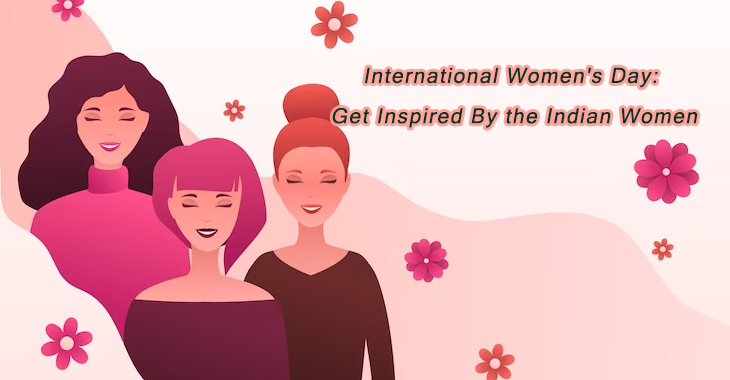
The world celebrating the Women’s day today and this is the time to remembering our Sheroes. We never forget our unseen sheroes and should inspire by them to progess in our life. Here We have taken few legendary female sheroes from india who are the experts in their field.
1. Anandi Gopalrao Joshi – First Female Allopathic Doctor
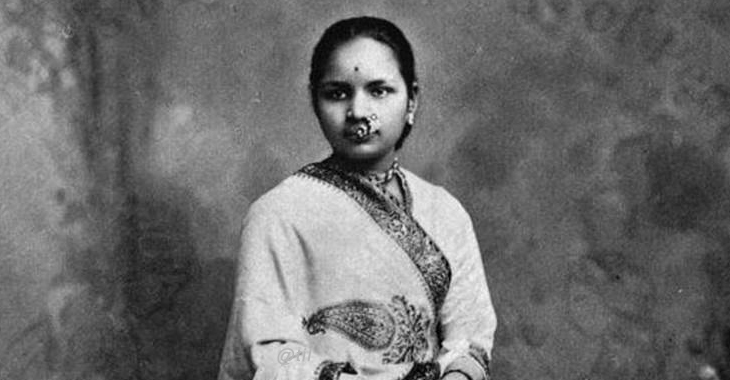
Anandi Gopalrao Joshi holds the distinction of becoming her parents’ first female physician. However, her husband eventually changed it to Anandi. At the infant age of nine, she was wed off to Gopalrao Joshi. It’s interesting that Gopalrao insisted that Anandi receive a quality education. In the early 1800s, enrolling someone in a missionary school was practically unheard of.
Anandi was sent to the United States to study medicine once more by Gopalrao. She earned her MD in 1886 after completing a two-year medical programme at the Woman’s Medical College of Pennsylvania. Her thesis, titled “Obstetrics Among the Aryan Hindoos,” incorporated data from both old Ayurveda texts and American textbooks.
After finishing her education, she returned to India and was given the position of doctor in charge of the female ward at the Albert Edward Hospital. Regrettably, a year after her tenure, Anandibhai contracted TB. While medicine arrived for her all the way from America, there was no improvement. Her passing in 1887, at the young age of 21, was lamented all over the nation. Yet, she continues to be regarded as one of India’s most inspirational ladies. The Anandibai Joshi Prize for Medicine is given annually in recognition of Anandibhai’s services to Indian medicine by the Institute for Research and Documentation in Social Sciences in Lucknow.
2. Captain Prem Mathur – First Woman Commercial Pilot
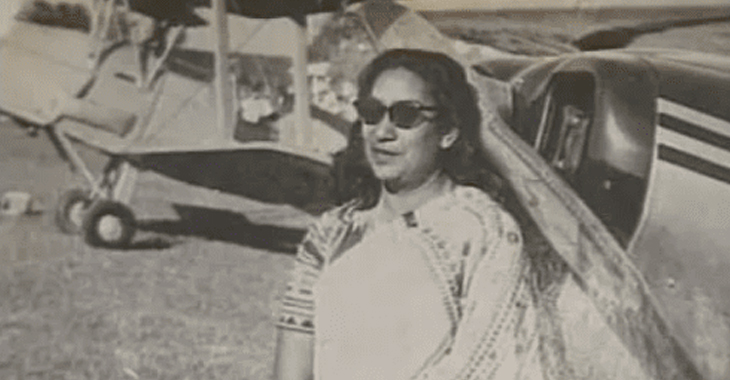
Captain Prem Mathur has the distinction of becoming the first female commercial pilot in India. Born in 1910, Mathur was the youngest of five siblings. One of her brothers worked as a flight instructor, while the other one was employed in the same field.
Her younger brother recently purchased a few used military aircraft. One of these planes was sold to the Lanka Flying Club. In order to get the plane to the club, he then hired Captain Atal. Captain Atal was crucial to Mathur’s success.
Captain Atal made the decision to give her the controls and offer her instructions on how to fly the plane when she displayed no signs of fear while flying in the aircraft.
This inspired Mathur to give becoming a pilot some serious thought. She overcame many obstacles to receive training. She was turned down by a number of airlines, though. Captain Prem Mathur was persistent and would not let up till she attained her first success at the age of 38. In reality, when Indian Airlines employed Captain Prem Mathur as a co-pilot in 1953, India became the first nation to have a female pilot. Captain Prem Mathur’s narrative meets the mark if you’re looking for successful Indian ladies who inspire you. At the age of 82, Mathur passed away in the company of her loved ones in 1992. The ability of this woman to fly a plane across the skies of India with such tenacity inspires people of all ages.
3. Janaki Ammal – First Indian Woman Botanist
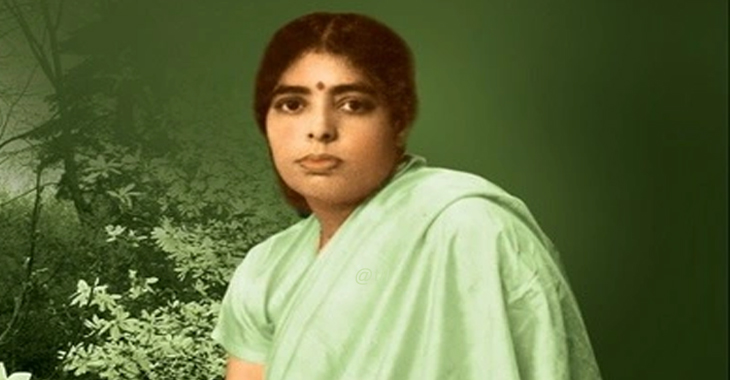
Introducing Janaki Ammal, the first woman from India to receive a PhD in botany. She grew up in a time when the majority of Indian women were denied access to education. She was born in 1897 into a blended household with 19 siblings. Ammal made the decision to continue her education when it was her turn to be married. She eventually earned a bachelor’s degree from Queen Mary’s College in Madras and an honours degree in botany from Presidency College in Madras. The Barbour Scholarship she received in 1924 allowed her to concentrate on plant cytology at the University of Michigan. She earned her doctorate in 1931, making history as the first Indian woman to do so in the United States.
Thereafter, she continued to make a number of important contributions to her field of expertise. Did you know that she is credited with producing the sweeter types of sugarcane in India? She spoke out against the hydroelectric project in Kerala’s Silent Valley as an activist. She also created other Indian eggplant hybrids. It makes sense that Janaki Ammal’s beautiful Magnolia Kobus Janaki Ammal blossom bears her name. She persevered in a patriarchal society to achieve her academic goals and establish herself. She is regarded as one of the top ten Indian ladies in history. Janaki Ammal was able to enhance the native sugarcane varieties of India while working at the Sugarcane Breeding Station in Coimbatore.
In order to work at the prestigious John Innes Institute, Janaki Ammal relocated to England in 1940. Together with Cyril Dean Darlington, she also co-wrote the book Chromosome Atlas of Cultivated Plants. Later, in 1946, she joined the Royal Horticultural Society in Wisley as the organization’s first salaried female employee. She carried out her research on the Magnolia Kobus Janaki Ammal, a shrub that has dazzling white flowers and purple stamens, here.
The stunning Magnolia Kobus Janaki Ammal blooms every spring in the famed garden at Wisley, despite the fact that Ammal returned to India in 1950. when she was older. Janki Ammal developed been a fervent supporter of the conservation and importance of India’s native plants.
She received the Padma Shri from the Indian government in 1977. The Ministry of Environment and Forests created the National Prize of Taxonomy in her honour in 2000.
At the age of 86, she died in 1984. Janaki Ammal, hailed as a pioneer in her area, is often ranked among India’s Top 10 Most Inspiring Women. Quiet Valley’s continued biodiversity and the stunning magnolias at Wiseley’s are examples of Janaki Ammal’s work.
4. Miss C.B. Muthamma – First Woman IAS
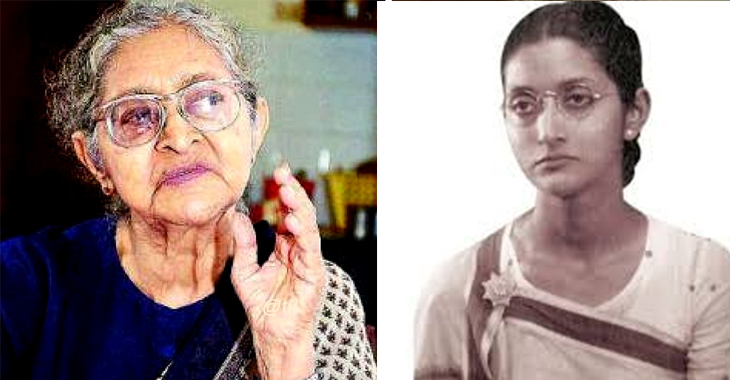
Miss C.B. Muthamma, also known as Chonira Beliappa Muthamma, has a long list of firsts to her credit. She was the first woman to pass the 1948 IAS exam, the first woman to join the Indian Foreign Service, and the first woman to hold an Indian diplomatic post. She eventually rose to become the country’s first female ambassador from India. Muthamma was one of four kids born in 1924. Her mother insisted vehemently that her kids receive the greatest education possible. With the help of this assistance, Muthamma was able to graduate with three gold medals and then earn a master’s degree from Presidency College.
After successfully passing the tests in 1948, she then began her job with the IFS. Female ambassadors were almost unheard of in those days.
She was forced to sign a document forbidding her from getting married while she was still in the service. Nonetheless, Muthamma significantly contributed to gender inequality in the Indian Civil Service. She even brought a lawsuit against these issues before the Supreme Court. Unquestionably, Muthamma is one of the Indian women who has pioneered the way for future female officers in the Indian Civil Service and is an inspiration to all women.
When it was Mutumma’s turn to be promoted, she was unfairly passed over. She was compelled by this to petition the Supreme Court in opposition to the government. The rules that are now in place for the employment of women, according to Muthamma, are discriminatory.
Finally.When the Supreme Court bench ruled in Muthamma’s favour in 1979, the discriminatory rules pertaining to foreign service members were overturned. This ruling set a new precedent in India. As the first female Indian ambassador, Muthamma was soon appointed as the country’s representative in Hungary. Her final posting was in the Netherlands after a later one in Ghana. At the age of 85, she died in 2009. She made it so that women who joined the IFS in the years that followed were no longer subject to oppressive norms.
5. Saalumarada Thimmakka – First Female Environmentalist
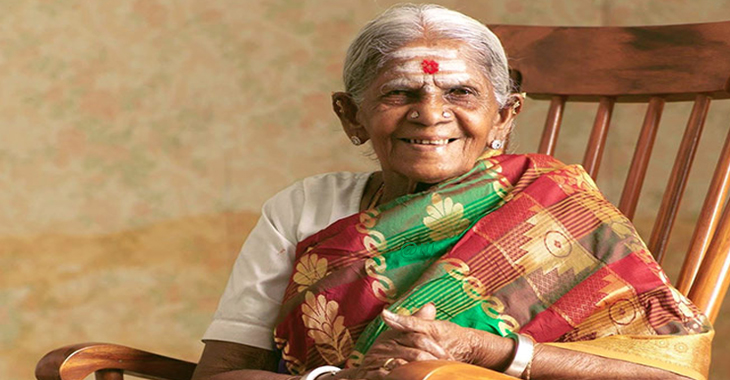
Saalumarada Thimmakka is regarded as one of history’s most inspirational women. She rose to fame as the first female environmentalist from India after being born in 1910. Thimmakka, who lacked a formal education, went ahead and planted more than 385 banyan trees along the Karnataka route between Hulikal and Kudur. When she received the National Citizens Award in 1995, the media paid attention to her.
Youngly married to Bikaalu Chikkaiah, they struggled to have children of their own. In order to have children, they started participating in rituals, prayers, and pilgrimages. They then began to grow banyan trees in the hopes of having a kid. They started taking care of the young trees, which quickly grew into a canopy covering the four kilometres of road.
With the assistance of her husband, Thimmakka has planted more than 8000 more trees. The Indian government appreciated her efforts, and in 2019 she received the Padma Shri. The Central University of Karnataka also conferred an honorary doctorate upon her in 2020.
These historical Indian women who set the bar high were pioneers in their fields. To prevent their dedication and tenacity from fading into obscurity over time, it is important to introduce them to the next generation. Who knows, it might even encourage the younger generation to take on new challenges and carve out successful careers in the near future. Girls are just as capable as boys of realising their aspirations.
Read More

